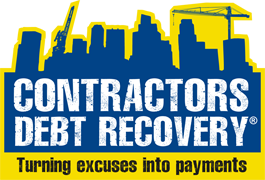How to Read Contracts
Video Transcript
Okay. Anthony from Contractors Debt Recovery back again. Today, we’re going to talk about reading contracts. This is not a detailed legal lecture. This is how to read contracts and to start you need three key ingredients. The first is a nice juicy red pen. The second is a yellow highlighter and the third is a strong cup of coffee. Now get those three things in front of you and then pull the contract out and now you’re ready to go.
You need to go through and read your contract. Don’t read the page where it says how much they’re going to pay you. I know that’s all very exciting. But there are other things that are more exciting and more important, which is all the terms, annexes, and all the other guff that’s in there. So read it from beginning to end, quietly on a weekend when you can concentrate and focus.
If you don’t understand something I want you to highlight it. Highlight the whole section. If there’s a part of it that you reject that you think is ridiculous and there’ll be some of that I guarantee you. I want you to get the nice juicy red pen and red-ring it. And if you have an alternative suggestion scroll in what your alternative is. Go through beginning to end and you should have two lists. You need to be creating two lists.
Everything of yellow highlighted which I don’t understand and those things in red which I don’t agree. Some might be both. You don’t agree with it and you don’t understand it. There’ll be a lot of that in there. Create two lists and then go back and review them and then seek advice and seek help. Don’t be pushed and rushed to sign a contract part of which you reject or you don’t understand. That’s just a dead warrant. So forget about that.
You then need to study the general terms and condition of the contract. There’ll be a section on that and there will also particulars towards the back. The particulars showing liquidated damages amount, percentages, interest rates and other bits and pieces, the date in which you have to make claims, due dates and payments. Understand all of that. It’s all very important. There’s a reason they’re at the back of a contract so I hope you get that about the time you get there.
Persist and understand all those things. Read all your annexes and understand them. Special conditions and amendments read them, understand them, make them part of your list. Study a contract and then get help. If you can do those things you’ll be armed, you’ll be in a far stronger position when it comes to starting your work and ultimately arguing about payment in a Security of Payment adjudication. So please make that part of your business and I’ll see you next time.
